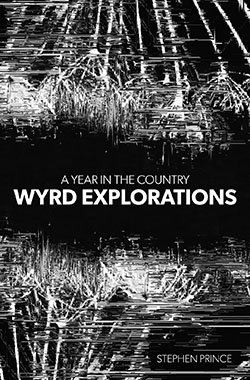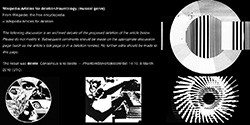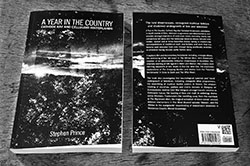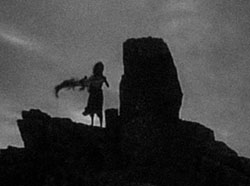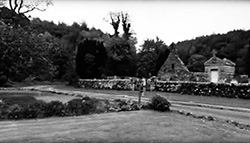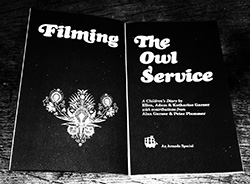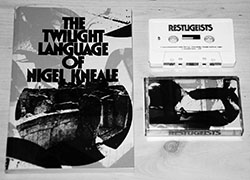 Britannia is a television drama series created and in part written by Jez and Tom Butterworth and James Richardson.
Britannia is a television drama series created and in part written by Jez and Tom Butterworth and James Richardson.
Alongside the likes of The Living and the Dead, Requiem, Detectorists and the turn of the millenium remake of Randall & Hopkirk (Deceased) it could be placed in a loose gathering of “glimpses of Albion in the overgrowth” television – mainstream dramas etc which to various degrees explore, utilise and express a flipside or otherly pastoralism, with particular reference to the sometimes semi-hidden history, ancient folklore etc of Britain.
It tells the story of the second invasion of Britain by the Romans in AD 43, with the Roman troops finding an island where the ruling tribes are divided and at war with one another.
At heart the series is an epic historical fantasy drama, one in which there is also a strong sense of the mystical in the series, with a cult-like religion lead by druids appearing able to utilise and call upon magical forms.
(Jez Butterworth is also a renowned playwright and the tone of the episodes changes to a degree depending on who wrote them, with Jez Butterworth’s sometimes having a more intimate atmosphere which connects with his writing for stage, while his brother Tom Butterworth’s often have a more epic feel and seem to be more involved with advancing a wider, grander sense of the narrative and conflict.)
I can remember being taught a fair bit about Roman history at school, with the overall emphasis being along the lines of “Oh, weren’t they good as they were so organised, introduced sanitation etc”.
Their depiction in Britannia causes the viewer to stop and consider that while that may have been the case but they may also have been murderous, duplicitous, imperialist invaders who essentially were only really interested in and driven by the possibility of funnelling internationally collected taxes back to Rome.
The series put me in mind of Star Wars in the sense of it being an epic tale of a mystical force orientated group arrayed against a power which utilises both a mystical power and more advanced/greater technological power: in Star Wars it is the Jedis and Rebels vs the Emperor/Darth Vader and the Empire, in Britannia it is the tribes and those who believe in the powers of the druids vs the Roman Empire.
In part the first series of Britannia appears to be a telling of the shattering of the sway of one particular set of beliefs in mystical power, whereas if viewed as a whole Star Wars is more concerned with depicting the plucky resilience of a small group who still believe in the mystical “force”.
Britannia also differs in that, while it is a heavily fictionalised version of history, it is still grounded in that history and so the viewer knows that eventually the technocratic invaders will be victorious.
And as in Star Wars the powers that are associated with the mystical forces actually seem quite limited in terms of their practical application – some mild brain washing, the instilling of visions, limited telekinetics etc – particularly in contrast to the more technocratic power they are used against but they still hold a lot of sway within the minds of believers.
The Romans are also shown as often having strong religious and mystical beliefs, particularly amongst the rank and file of the troops and Britain is seen by many of the Romans as a fearful place, full of the supernatural:
“What does Britain have? Wood and nightmares.”
(Wood being a particularly necessary raw material at that time, as it was needed to build the fleets of ships which the Romans used to carry invasion forces and maintain their rule.)
However, while they may call upon their gods, the Roman’s faith and/or mystical beliefs seem to have less sway than amongst Britain’s tribes, where the rulers are shown as often seeing the druid’s edicts as having to be followed and obeyed (although not without debate and dissent, particularly amongst the younger future leaders).
The leader of the Roman invaders is shown as a driven, brutal man who is only really interested in mystical and religious beliefs as just another tool that can be utilised in the manipulation of his enemy in order to get the job done.
Also the Roman’s religious/mystical beliefs and rituals do not appear to have much overt real world practical presence and effect in contrast to say the way in which the druids are able to control minds and actions, visit the netherworld etc.
Of particular note in the series is the title sequence by Me & the Bootmaker, which has a collaged, psychedelic and almost occult like, folk horror-esque hand finished aesthetic and is accompanied by the 1968 song Hurdy Gurdy Man by Donovan.
Hurdy Gurdy Man is a pop-psychedelic song, which reached number 5 and number 4 respectively in the US and UK singles chart and Donovan has often been connected with a late 1960s pop music orientated interest in psychedelia.
Apparently the song had an additional verse written by George Harrison, which was not on the single and which read now as a semi-hidden history of the song seems to connect it more directly with the mystical, semi-hidden or fantastical histories which Britannia in part explores:
When the truth gets buried deep
Beneath the thousand years asleep
Time demands a turnaround
And once again the truth is found
The use of Hurdy Gurdy Man could also be connected to modern-day British folklore, as it was towards a utopian community founded by Donovan on the Isle of Skye that once-lost-lady-of-folk Vashti Bunyan and her partner undertook their now almost mythical horse-drawn journey, around a similar time as the singles release.
Elsewhere:
Britannia’s Trailer
The Britannia title sequence at Me & the Bootmaker
Vashti Bunyan
Elsewhere at A Year In The Country:
1) Day #146/365: Glimpses of Albion in the overgrowth
2) Day #274/365: Borrowings from Albion in the overgrowth…
3) Day #275/365: Borrowings from Albion in the overgrowth (#2)… becometh a fumetti…
4) Day #316/365: The Detectorists; a gentle roaming in search of the troves left by men who can never sing again
5) Audio Visual Transmission Guide #16/52a: The Living And The Dead
6) Ether Signposts #16/52a: Vashti Bunyan: From Here To Before and Whispering Fairy Stories Until They Are Real
7) Wanderings, Explorations and Signposts 25/52: Requiem Part 1 – Further Glimpses of Albion in the Overgrowth and Related Considerations
8) Wanderings, Explorations and Signposts 32/52: Detectorists, Layered Timeslips, Albion in the Overgrowth, The Unthanks and Secrets Never Told






